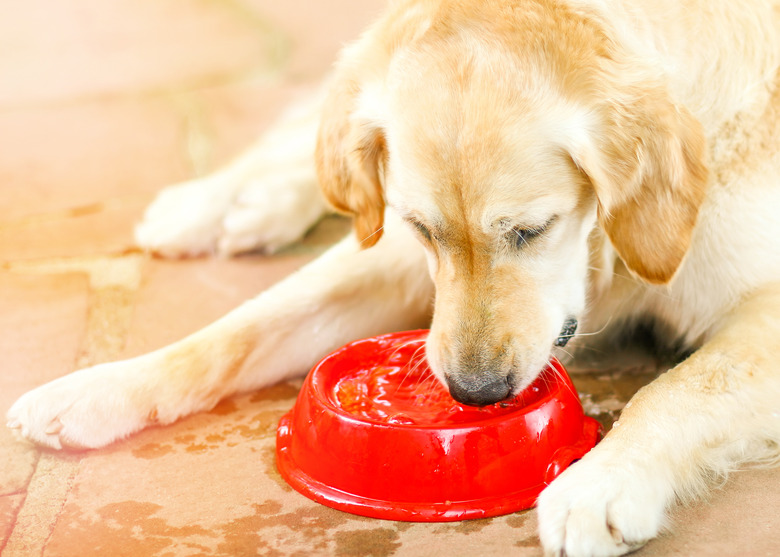What Does Glucose In Dog Urine Mean?
If your veterinarian tells you that your dog has glucose in their urine, you might be wondering what this means and what possible health implications it might have. While glucose in dog urine can indicate a number of medical conditions, the most likely culprit is diabetes mellitus. Understanding why a pet might have glucosuria and how the kidneys tie into that process as well as possible diagnostic tests and treatment options is important for any pet parent facing this issue.
Should dogs have glucose in urine?
Should dogs have glucose in urine?
No, healthy dogs should not have glucose in their urine. If they do, this indicates that their blood sugar is staying too high, crossing over the renal threshold and spilling over into the urine. Glucose in dog urine is a sign of canine diabetes, a serious disease that requires lifelong management.
To understand how glucose gets into a dog's urine, you need to understand the kidneys' relationship with blood sugar and other substances in the body. The kidneys are the bloodstream's bouncers, filtering out undesirable elements in urine, moving them to the bladder, and expelling them from the body. Kidneys also help maintain the correct balance of salt and water; play a role in controlling blood pressure; and keep levels of essential minerals, such as phosphorus and calcium, in check. Just as humans can't be fully healthy without good kidney function, neither can dogs.
Chronically elevated blood glucose levels can damage the blood vessels in the kidneys over time. When kidneys don't function properly, wastes build up in the blood and cause sickness. That's why a urinalysis can tell veterinarians so much about a dog's health, both generally and in relation to specific conditions. Older dogs are more susceptible to kidney disease than younger ones. (However, most kidney disease in geriatric dogs is due to aging rather than diabetes.) If left untreated, kidney disease can be fatal.
What are some symptoms of high glucose levels in dogs?
What are some symptoms of high glucose levels in dogs?
There are several telltale signs that a dog might have chronically elevated blood sugar. If you notice any of these symptoms, contact your veterinarian for a thorough examination.
- Increased thirst
- Increased urination
- Sweet-smelling urine
- Weight loss despite an increased appetite
- Eye issues (cloudy eyes, cataracts)
- Frequent vomiting
- Lethargy or listlessness
- Frequent urinary tract infections
- Decreased appetite
What glucose in dog urine suggests
What glucose in dog urine suggests
When veterinarians test glucose levels in dogs' urine, the reading should be negative. If it's positive, it means that the dog's blood sugar is staying consistently above the normal range (also known as hyperglycemia), and some of the excess gets filtered into the urine. Insulin, a hormone produced by the pancreas and released into the bloodstream, is necessary to metabolize sugars, fats, and proteins; if the pancreas is underperforming, the balance of everything else in the blood will be knocked out of kilter.
Though diabetes mellitus isn't the only possible cause (for example, the pancreas can fail to produce sufficient insulin after a severe case of pancreatitis or with recurring pancreatitis), it will be one of the top differential diagnoses if your veterinarian discovers glucose in your dog's urine.
Do some dog breeds have higher urine glucose?
Do some dog breeds have higher urine glucose?
Yes, some breeds appear to be more susceptible to kidney problems than others. These include Samoyeds, bull terriers, cairn terriers, German shepherds, and English cocker spaniels. Elevated glucose levels that are not attributable to diabetes but are due to congenital diseases have been identified in a few breeds and mixed breeds, including basenjis, Norwegian elkhounds, Shetland sheepdogs, miniature schnauzers, and Scottish terriers.
Glucose in a dog's urine can also be the result of other conditions not related to diabetes, such as bleeding in the urinary tract and Cushing's disease, which causes the adrenal glands (that sit on top of the kidneys) to overproduce the hormone cortisol.
Diagnosing the presence of glucose in dog urine
Diagnosing the presence of glucose in dog urine
If you suspect that your dog has glucose in their urine, you should visit your veterinarian. They will collect a urine sample for lab analysis, which will detect any glucose in your dog's urine if it's there. The urinalysis can also flag protein in dogs' urine, which can be associated with diabetes mellitus, as well as other diseases. As part of a complete urinalysis, your veterinarian will use a dipstick test strip to see if there is glucose, blood, protein, and other things in your dog's urine.
To confirm or rule out diabetes, the veterinarian will likely run an in-house blood glucose test as well as ordering a complete blood count (CBC) and chemistry in addition to the urinalysis. These tests can help your veterinarian get a better idea of the severity of the illness.
Treatment of high glucose in a dog's urine
Treatment of high glucose in a dog's urine
If your veterinarian has diagnosed your dog with diabetes mellitus, the next step is to determine the best course of treatment. All diabetic dogs will need insulin injections, usually twice a day. Your veterinarian or veterinary technician can teach you how to do these yourself. Another blood test that can be useful is fructosamine, which is used to monitor diabetic dogs who are already on insulin.
Some dogs will also need a change in their diet (most diabetic dogs benefit from a high-fiber diet, and if your dog is overweight, exercise and shedding excess pounds can help slow the progression of diabetes). However, a change in diet won't help your dog if they refuse to eat because they don't care for the new menu. With an insulin-dependent dog, your careful monitoring of food intake becomes the new normal. Given on an empty stomach, insulin can cause hypoglycemia, which can even be deadly.
Once your dog is established on a regular insulin dose and schedule, your veterinarian will likely run a daylong test called a blood glucose curve to determine if your diabetic pet is getting the correct dose. Your veterinarian will go over all of the guidelines and precautions regarding caring for a diabetic dog.
The bottom line
The bottom line
A healthy canine does not have glucose in their urine. If your dog does have it, this can indicate diabetes mellitus, especially when combined with clinical signs like increased thirst and urination, increased appetite, or weight loss. In this case, it's a result of the dog's blood sugar staying chronically high, which results in excess glucose getting filtered out in the urine. Other possible causes of glucose in dog urine include bleeding in the urinary tract and Cushing's disease. Your DVM (veterinarian) can test your dog's urine for glucose with a urinalysis, and if positive, they will likely do bloodwork to confirm a diabetes diagnosis. Diabetes management for dogs is lifelong and requires insulin injections daily.




